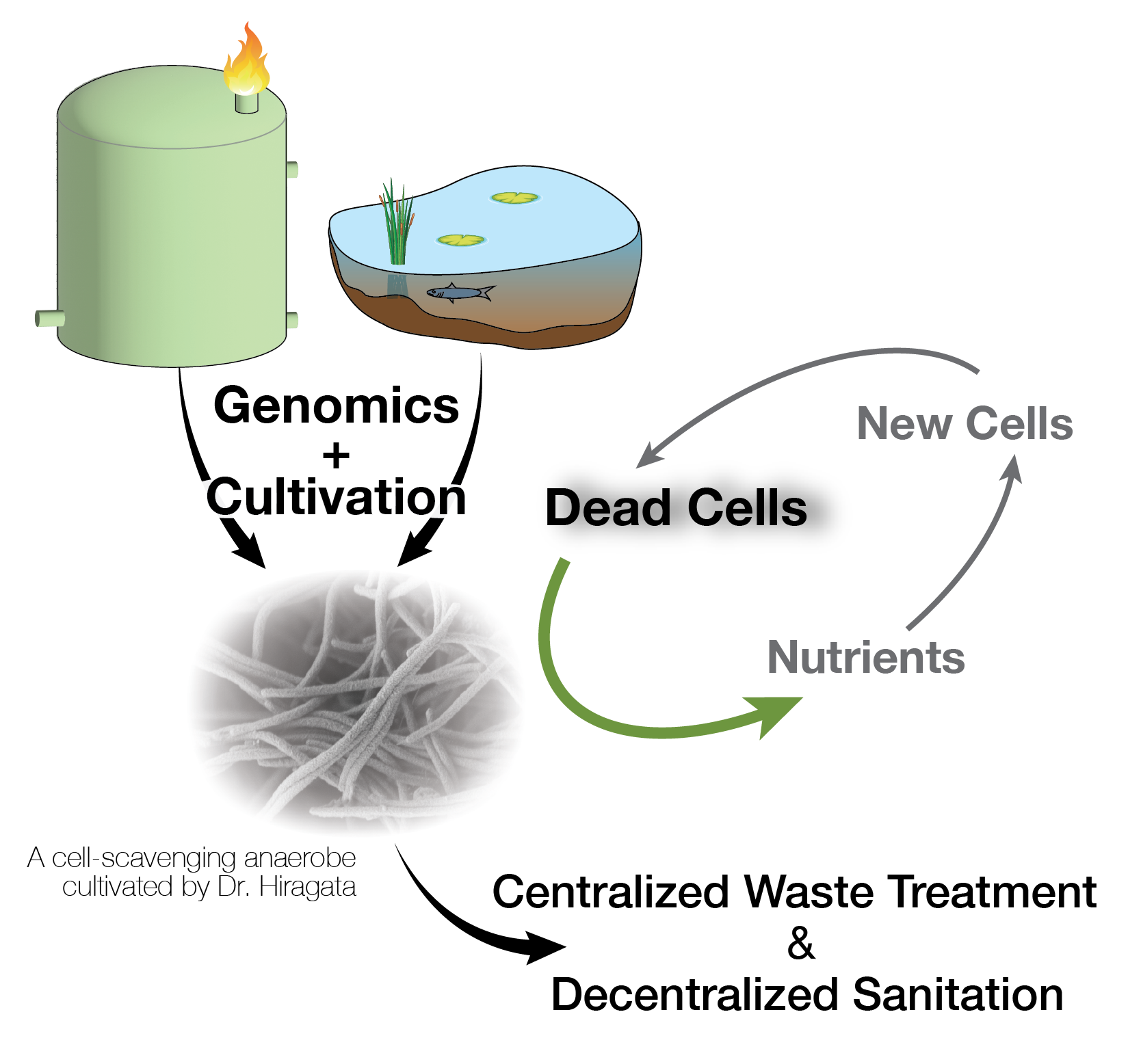Overarching Goal
Microbiomes, communities of bacteria, archaea, viruses, and tiny eukaryotes, are closely related to human well-being, sustainable development, and planetary health. They also possess extraordinary diversity that can be harnessed for safe and sustainable water provision and treatment. Despite recent advances, vast metabolic potential remains unexplored. Our group combines genomics, evolutionary biology, and engineering design to decode complex microbiomes in engineered and natural water environments and devise microbiome-informed solutions for sustainable water systems.
Theme 1. Microbial Evolution in Engineered Ecosystems
In the last century, the synthesis of over 80,000 new chemicals has transformed human life but also brought significant health and environmental risks. Many of these man-made pollutants are completely new to the microbes we employ in wastewater treatment, challenging existing processes. On the other hand, wastewater treatment may also drive microbial evolution of new metabolic capabilities to break down anthropogenic pollutants. We aspire to discover microbial genes and species that could be used to develop new remediation strategies.
Theme 2. Microbial Biomass Degraders for Waste Decomposition
Microbial biomass, including dead cells, constitutes a significant portion of the Earth's organic carbon pool, especially in oxygen-poor environments like water sediments and wastewater treatment systems. Biomass degradation is important for both global carbon cycle and waste treatment. Our goal is to uncover the vast and largely untapped diversity of microbial cell degraders that can enhance centralized water treatment processes and sanitation in resource-constrained communities.
Theme 3. Bridging Biology and Physics for Efficient Bioreactors
The interdependence between biological and physical dynamics is vital for bioreactor efficiency, but is often overlooked. We advocate for a comprehensive investigation of the intricate biology-physics interplay by coupling the quantification of the microbial and physical dynamics. By working with municipal facilities and industries, we aim to provide microbiome-informed bioreactor design and operation towards reduced footprints and enhanced efficiencies.



